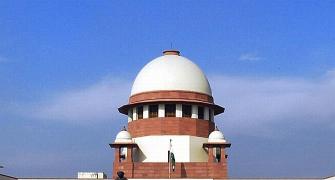
If you want to keep your CIBIL Score alive and kicking (healthy) make sure you steer clear from the above mentioned common credit score killers.
The CIBIL score seems to be the new buzzword in the financial word. Whether you like it or dislike it you cannot ignore it. CIBIL scores are important. Period! There are numerous ways to maintain and improve it but let's for a change look at the other side and find out the things that can harm or kill your credit score?
Late payments
You might have heard about the importance of paying on time umpteen number of time and may think here we go again on the same old track. However repetitive it may sound late payments are the biggest threat to credit score.
Often one might wonder that a delay of a day or wo should not matter but it does as late payments can reflect lack of planning or being irresponsible or being financially crunched.
A recent RBI circular gives credit card holders three days of grace period to make their payments. So be sure to use this to your advantage.
Usually an ECS mandate or post dated cheques are taken by the lender. So it is the borrower's responsibility to keep the account funded on the day the EMI debit is scheduled to happen.
Loans and credit cards with pending issues
Taking a NOC at the end of the loan duration is very important. Despite paying on time all installments, an open loan can harm the credit score.
Often borrowers feel that since they have paid all their dues it's a closed chapter but it is not so. Often due to frequent movements from one city to another or simple forgetfulness one might not bother to take a NOC which can pull down the CIBIL score.
Similarly one may surrender a card without checking for any dues (the applicant might be unaware); these charges left unpaid keep getting accumulated and can harm the CIBIL score.
In both the above conditions the customer may feel that s/he is done her/his bit and might be totally unaware of the pending issue.
Maxed Out credit card
The question that comes to mind reading the above statement is: if I am able to pay on time then what is problem if the credit card usage touches the sanctioned limit? Well it is not as simple as that.
A CIBIL score reflects the credit behaviour pattern of a customer. A credit card bill touching the sanctioned limit frequently can be an indicator of being credit hungry, lack of planning or being addicted to credit cards.
High credit card bills can result due to the simple oversight where the card holder has failed to enhance the credit limit with passage of time (which results in higher expenditures as well higher income) or the applicant has no control over her/his credit card spending and is prone to impulse swiping
Fraudulent use of card
If your card falls in wrong hands or somebody is able to access your card details they are likely to use it indiscriminately. There are a host of ways in which a credit card can be misused: the first being it is stolen or left at merchant establishment erroneously (where it is swiped without your knowledge), skimming where the magnetic strip details are copied to clone the card, using it at a fraudulent online site or phishing.
The fraudsters obviously will like to maximise the usage before they are discovered which means that you might be saddled with bills that you cannot pay at the end of the month and your credit utilisation goes very high.
Both late payments and high credit utilisation harm the CIBIL Score. The sooner the theft or fraud discovered the less harm you are likely to suffer.
Simple steps like applying for mobile alerts or not sharing information can prevent this.
Closing cards or foreclosing loans
Closing a credit card lowers the overall credit limit available to the individual which can immediately cause the credit utilisation to go high which in turn can cause the CIBIL score to plummet.
Closing a credit card account especially if it's an old one with a decent payment history is not advisable.
Similarly foreclosing a loan has a negative impact on the CIBIL Score at least in the short term as the credit rating agencies are not sure of the status of your finances after one uses a sizeable chunk of money to prepay a bill. A longer, well-serviced loan is better for the CIBIL Report.
Photograph: GotCredit/Creative Commons
The author is a credit expert with 10 years of experience in personal finance and consumer banking industry and another 7 years in credit bureau sector. Rajiv was instrumental in setting up India's first credit bureau, Credit Information Bureau (India) Limited (CIBIL). He has also worked with Citibank, Canara Bank, HDFC Bank, IDBI Bank and Experian in various capacities.










